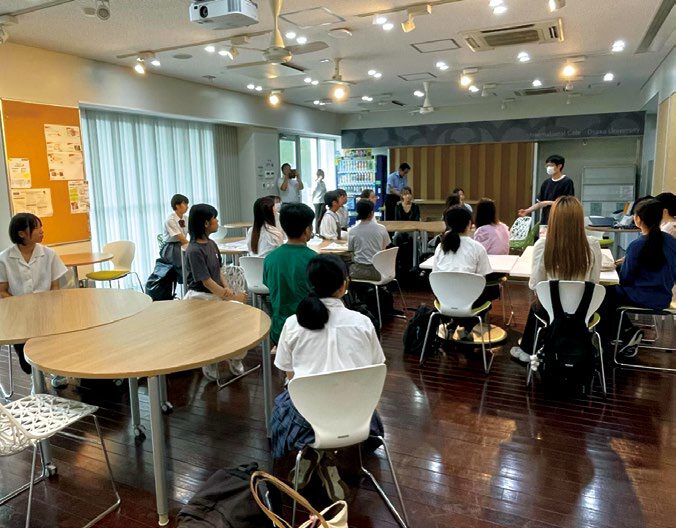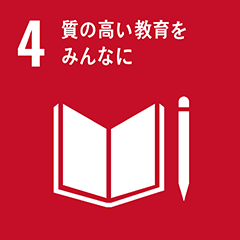Inochi Declaration
Foster a society where high school students, alongside university students, can explore the SDGs without assuming that there is a single correct answer, and where they can formulate their own questions through dialogue with others and propose their visions for the future in their own words.
One of the guiding principles of the Basic Act on Children in Japan is the following:
“Every child shall have their opinions respected in accordance with their age and stage of development, and their best interests shall be prioritized.”*1
As this principle suggests, there is growing recognition of children’s right to express their views publicly and to participate in shaping the society they live in. However, the goal is not to unconditionally accept their opinions, but rather to respect them while facilitating equitable dialogue—among children and between children and adults—on how their views can be incorporated into real-world decision-making.
One example of such efforts in Japan is the establishment of “Children’s Assemblies” at the local government level, where children propose policy ideas for their communities*2. These platforms allow children to articulate their visions for the future directly to adults in their regions. However, in today’s globally connected world, even local issues are inextricably linked to international trends. Therefore, it is essential to cultivate the ability to think and engage in dialogue not only within one’s immediate environment but also from a broader, global perspective.
The project titled “Development of Educational Curricula and Programs for Next-generation citizens who can co-create public knowledge based on their own life experiences”, led by Prof. Mika Okabe under the Social Solution Initiative (SSI) at The University of Osaka*3, aims to conceptualize a participatory society that includes children as key actors.
The project promotes civic engagement through dialogue and discussion, encouraging children and adults alike to challenge outdated social categories and work together to design a better society. As part of this initiative, a program titled “Academically Exploring What Lies Beyond the SDGs” has been developed and implemented.
The SDGs (Sustainable Development Goals), adopted by the United Nations under the motto “Leave no one behind,” outline what “we the people” must achieve in order to ensure the continued survival and flourishing of life on Earth. If we are to include “all of us,” then the hopes and opinions of high school students—those who will shape the future—must also be taken into account. Do the SDGs truly reflect the futures that high school students imagine and desire? And if not, can we really say that these goals are sustainable?

High school students debating at the seminar “Academically Exploring What Lies Beyond the SDGs”
“Academically Exploring What Lies Beyond the SDGs” is an intensive three-day seminar in which high school students engage with the SDGs through academic inquiry, global perspectives, and collaborative dialogue.
● On Day 1, participants examine the historical background and origins of the SDGs to understand their underlying significance.
● On Day 2, they engage in critical dialogue with fellow high school students and university students, re-evaluating the SDGs and their targets.
● On Day 3, students conduct research using resources at The University of Osaka Central Library and academic databases. They then formulate visions for the future in their own words and thoughts, looking beyond 2030 and toward 2050. These ideas are compiled and shared publicly as the “Inochi Voices.”
The program is scheduled to be held annually. Each year, 20 to 30 high school students will envision their desired future society and articulate their proposals to the broader public. How we respond to these proposals will be a question not only for today’s adults, but also for the high school and university students who will become the adults of tomorrow. These “Inochi Voices” will be the first step toward building a future society through collective effort— by all of us.
The Inochi Forum supports initiatives like this one, working to create a society in which the next generation can engage in dialogue across divisions and express their visions for the future in their own voices.
[Notes]
*1 Children and Families Agency – Reflecting Children’s Voices in Policy-Making (Basic Act on Children)
https://www.cfa.go.jp/laws/kodomo-kihon-iken
*2 Children’s Assemblies and Policy Dialogue
https://www.asahi.com/articles/DA3S15998392.html
*3 SSI Core Project – Fostering the Next Generation of Civic Co-creators
https://kyonin.hus.osaka-u.ac.jp/report/next-generation/
[Action Platform]
Education and Children
[SDGs]


